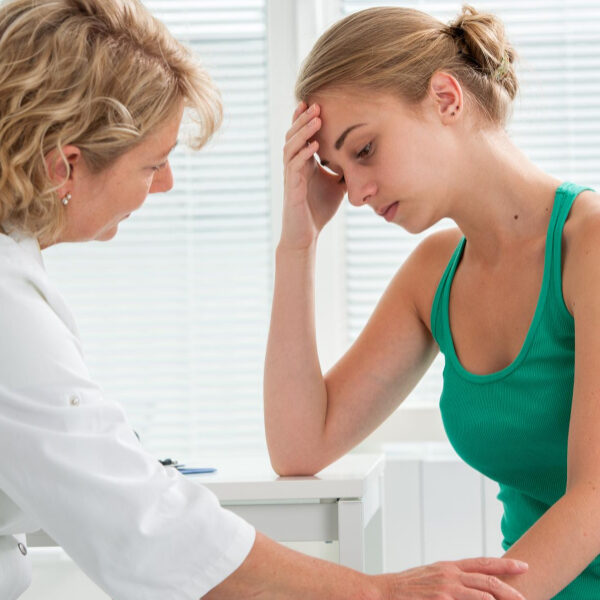FOR IMMEDIATE RELEASE
June 1, 2021
Contact
Juliet Hauser
juliet@sachsmedia.com
Help is Available for Women Who Suffer from Pelvic Organ Prolapse, Which Affects Half of Women Over Their Lifetimes
June is pelvic organ prolapse awareness month, advocates urge women not to suffer in silence
JACKSONVILLE, Fla. – Too often, the stigma surrounding a little-known but surprisingly common condition has kept women suffering in silence because of embarrassing or frustrating symptoms that may interfere with a more active lifestyle. Pelvic organ prolapse (POP) is estimated to affect half of all women at some point in their lifetime, and June is POP Awareness Month to focus on spreading awareness, destigmatizing, and normalizing the medical condition that affects nearly 3.9 billion women around the world.
Most commonly caused by either childbirth or menopause, POP occurs when tissues and muscles of the pelvic floor weaken and can no longer support the pelvic organs, allowing the organs to slip into the vaginal canal.
Sherrie Palm, Founder of the Association for Pelvic Organ Prolapse Support (APOPS), is dedicated to bridging the gap in understanding the condition by creating a space for women to share their experiences. She founded APOPS, a federally recognized 501(c)(3) nonprofit, in 2010 with the goal of expanding awareness while uniting women, physicians, researchers, academics, industry, and policymakers.
POP can be treated through medication, therapy, or a surgical procedure, but a Gallup survey found that 37% of women put off medical procedures due to cost and 35% do so because of inconvenience.
“These essential treatments are often coded as elective or experimental procedures. It’s a challenge for nearly any woman to meet the financial demands of the condition without insurance,” said Palm, who has experienced POP herself. “These treatments, procedures, and devices are essential to improving quality of life for women with POP.”
“We were shocked to learn that 50% of women suffer from this condition, yet more than one-third of the most common procedures are paid out-of-pocket by these women. Women pay nearly $750 a year from their own resources treating POP-related symptoms,” said Betsy Giordano, COO of Care Cap Plus, an innovative healthcare finance company. “No one should have to go without treatment which is why we are working with providers to bring an interest and fee-free alternative to medical expenses.”
Care Cap Plus focuses on delivering compassionate and responsible financing models to make medical care more affordable and accessible for all patients, while helping medical providers grow their own practices. With Care Cap Plus, patients no longer have to delay necessary or preventive healthcare treatments due to affordability issues or high deductibles. Unlike other healthcare payment options, Care Cap Plus provides interest and fee-free payment plans to patients of participating providers, extending care to those who otherwise could not afford it.
+++
Care Cap Plus, LLC enables healthcare providers to bridge the increasing gap between patient out-of-pocket expenses and available payment options. Care Cap Plus facilitates “no fine print,” zero-interest, plus zero-fee payment plans for providers, allowing patients to pay for elective or other procedures not covered by insurance without taking on a loan from a third party. Care Cap Plus payment plans allow partner providers to accept patients with subprime credit. For more information about Care Cap Plus, visit https://carecapplus.com/.
The Association for Pelvic Organ Prolapse Support (APOPS) is a nonprofit founded in 2010 to generate awareness of pelvic organ prolapse (POP) and to provide support and guidance to women navigating the physical, emotional, social, sexual, fitness, and employment impacts of this common, cryptic women’s health condition. APOPS is dedicated to advancing global pelvic organ prolapse awareness, while also offering women a space to share their experiences and learn more about POP. For more information about APOPS, visit https://www.pelvicorganprolapsesupport.org/.

